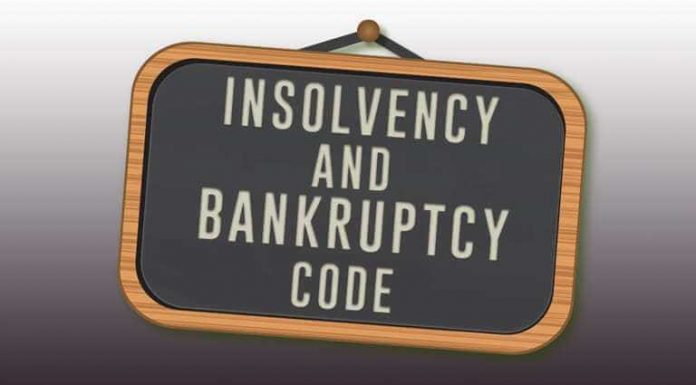This article is written by Miheer Jain pursuing Certificate Course in Advanced Civil Litigation from LawSikho.
Table of Contents
Introduction
In India, a moratorium is found under Section 14 of the Insolvency and Bankruptcy Code, 2016. The moratorium’s goals include preserving the corporate debtor’s assets intact during the CIRP and enabling the smooth completion of the CIRP and its operations. This article delves deeper into the concept of the moratorium in reference to the Supreme Court’s latest judgement in the case of P. Mohanraj & Ors. Vs M/s. Shah Brothers Ispat Pvt. Ltd.
Here, the Court recently issued an order holding, among other things, that the order of moratorium under Section 14 of the Insolvency and Bankruptcy Code, 2016 (‘Code’), applies even to proceedings initiated under Section 138 of the Negotiable Instruments Act, 1881 (‘Act”).
Before analysing the decision, it may be essential to take a quick glance at the history of the Negotiable Instruments Act of 1881 and its changes in order to understand why Section 138 was added to the Act. This article ventures into the provisions of the Negotiable Instruments Act in relation to the aforementioned case and provides an analysis of the SC judgement in light of these provisions.
A glance at Chapter XVII of the Negotiable Instruments Act, 1881
- The cheque is a commonly used negotiable instrument that, despite the arrival of electronic ways of payment, is still one of the most popular choices among merchants. Prior to 1988, there was no provision in the Act prohibiting people from issuing checks without sufficient cash in their account, nor was there any provision punishing them if their checks were dishonoured.
- The abuse of this device had become so widespread that it was thought necessary to change the law to make it more difficult for refractory drawers while also providing enough safeguards to prevent harassment of honest drawers. As a result, the statute was changed in 1988 to reflect these modifications.
- Chapter XVII of the Banking, Public Financial Institutions, and Negotiable Instruments Laws (Amendment) Act, 1988, inserted Sections 138 to 142 into the Act. While Section 138 deals with penalties for cheque dishonour due to a lack of funds in the accounts, Section 139 establishes a presumption that the holder of the cheque has received the cheque in full or in part to discharge a debt or other obligations.
- To refute this presumption, facts must be presented, and they must be shown by a preponderance of the evidence. It is not a defence in a prosecution for an offence under Section 138 that the drawer had no cause to think when he issued the check that it would be dishonoured when presented, according to Section 140 of the Act.
- If the components of Section 141 are met, Section 141 renders the Directors and other people statutorily accountable. The method to be followed while taking cognizance of an offence punishable under Section 138 is outlined in Section 142.
Relevant provisions of Negotiable Instruments Act
Because the punishment provided under Section 138 of the Act was considered to be insufficient, and the method specified for the Courts to deal with such situations was found to be difficult, it was felt that revisions to the Act were required. As a result, Sections 143 to 147 of the Negotiable Instruments (Amendment and Miscellaneous Provisions) Act, 2002 were enacted. The following were some of the goals that were sought to be met: :
- To increase the quantum of punishment prescribed under the Act from 1 year to 2 years;
- To establish a formulated procedure for service of summons to the accused or witness by Court through speed post or empanelled private couriers;
- to provide for summary trial of the cases under the Act with a view to speeding up disposal of cases;
- to make the offence under the Act compoundable.
Effect of the 2015 Amendment
Although Section 142 of the Act, which was enacted in 1988, defined the circumstances in which a complaint about cheque dishonour might be submitted, it did not define the territorial jurisdiction of the courts in which such a complaint might be lodged. As a result, it was up to the courts to determine whether a case submitted fell within their territorial jurisdiction. Various Courts, even High Courts, have made contradictory judgements in this regard. In the case of Dashrath Rupsingh Rathod vs. State of Maharashtra, the Hon’ble Supreme Court of India declared, among other things, that the geographic jurisdiction for cases involving the charge of check dishonour is limited to the court whose jurisdiction the drawee bank is located.
This ruling did not, however, totally resolve the issue of territorial jurisdictions. By depositing the check-in a branch of the bank that was physically remote from the real branch of the bank where the complainant held his account, the complainant may nevertheless gain an unfair advantage and bring the accused to the remote corners of the country for prosecution.
The Negotiable Instruments (Amendment) Act, 2015, was enacted to address this problem. Section 142 of the Act was revised, among other things, to stipulate that complaints of check dishonour can only be filed in a court whose jurisdiction includes the bank branch where the payee maintains the account.
Effect of the 2018 Amendment
Despite many attempts made from time to time to ensure the timely, cost-effective, and seamless disposition of cases involving check dishonour, the anticipated impact on case pendency was not achieved. All of the good intentions in enacting the numerous amendments came to nought due to the use of delaying tactics by unscrupulous drawers in court proceedings. The sanctity of cheque transactions was jeopardised as a result of these delays.
It was felt that there was a need to address the issue of undue delay in the ultimate resolution of cheque dishonour cases, as well as to prevent frivolous and needless litigation, in order to save time and money. As a result, the Negotiable Instruments (Amendment) Act, 2018 was enacted, with a new Section 143A stating that a court trying an offence under Section 138 may order the drawer of the cheque to pay interim compensation to the complainant in a summary trial or a summons case where he pleads not guilty to the allegations in the complaint; and in any other case, upon framing a charge. The interim compensation payable shall be a sum equal to or less than 20% of the amount of the check. In addition, a new Section 148 was added to allow that the Appellate Court may order the appellant to deposit a sum equal to at least 20% of the fine or compensation issued by the trial court in an appeal by the drawer against a conviction under Section 138.
The object and intent behind the various changes in law can be summarized as:
- To enhance the acceptability of cheques in settlement of liabilities by making the drawer liable for penalties in case of dishonour of cheques due to insufficiency of funds in the accounts.
- To make the directors/persons in charge of the company liable for the offence of dishonour of cheques on behalf of the company.
- To provide for summary trial of the cases under the Act with a view to speeding up disposal of cases.
- To address the issue of undue delay in the final resolution of cheque dishonour cases and discourage frivolous litigation by providing interim compensation to the complainant, pending the 138 proceedings or the appeal as the case may be.
Moratorium under the Insolvency and Bankruptcy Code, 2016
Now that we’ve grasped the Act’s intent, let’s look at the Insolvency and Bankruptcy Code, 2016 (‘Code’) to see what it aims to accomplish, which is to keep “the corporate debtor’s assets together during the insolvency resolution process and facilitating orderly completion of the processes envisaged during the insolvency resolution process and ensuring” that “the corporate debtor’s assets are kept together during the insolvency resolution process and ensuring” that to achieve this goal, the Code contains Section 14, which allows the authority, the National Company Law Tribunal, to impose a moratorium to ensure that the corporate debtor’s assets are not depleted during the insolvency resolution process and that it is kept afloat as a going concern during the process, maximising the value for all stakeholders.
Keeping foregoing in mind, as well as the intent and object of Section 14 of the Code, we will now look at the decision in the case of P. Mohanraj & Ors. vs Shah Brothers Ispat Private Limited, in which the question was whether the institution or continuation of a proceeding under Section 138 read with Section 141 of the Act could be said to be covered by Section 14 of the Code.
Facts of the case
- Respondents delivered steel items to M/s. Diamond Engineering Pvt. Ltd. (‘company’), for which the company issued a total of 53 checks. All of the cheques were returned unpaid due to insufficient balance when they were presented.
- As a result, the respondent issued two statutory notifications under Section 138 read with Section 141 of the Act on March 31, 2017, and May 5, 2017, respectively, requiring the corporation and its directors to pay the sum within 15 days.
- After the firm refused to pay, the respondent filed two criminal complaints with the Ld. Additional Chief Metropolitan Magistrate, Kurla, on May 15, 2017, and June 21, 2017, respectively, under Section 138 read with Section 141 Act.
- Prior to that, on March 21, 2017, the respondent served a demand notice on the firm under Section 8 of the Code, which was followed by an application to the National Company Law Tribunal, Chennai (‘NCLT, Chennai’) under Section 9 of the Code.
- In an order dated June 6, 2017, the NCLT, Chennai admitted the application filed under Section 9 of the Code and imposed a moratorium on the firm under Section 14 of the Code.
- On May 24, 2018, the NCLT in Chennai ordered the respondent to withdraw the complaint filed under Section 138 of the Act, stating that it was filed after the moratorium decision and that it amounted to an abuse of the legal process.
- The respondent filed an appeal with the National Company Law Appellate Tribunal (‘NCLAT’) after being aggrieved by the judgement of May 24, 2018. The NCLAT, in a judgement dated July 31, 2018, set aside an order dated May 24, 2018, concluding, among other things, that Section 138, being a criminal law provision, cannot be considered a “proceeding” under Section 14 of the Code.
- The appellants filed their Civil Appeal before the Hon’ble Supreme Court in response to the order dated July 31, 2018.
- On September 30, 2019, the NCLT Chennai authorised a resolution plan filed by the company’s promoters during the pendency of the Civil Appeal.
Question of law
- Is it possible to say that a proceeding initiated or continued under Section 138/141 of the Negotiable Instruments Act is covered by the moratorium clause of Section 14 of the Code?
Observations and findings
Before delving into the court’s observations and conclusions, it’s crucial to grasp the gist of the matter brought before it by the appellant. The appellant argued that the purpose of Section 14 of the Code was to protect the assets of the corporate debtor during the corporate insolvency procedure. As a result, it would be inconsistent to declare that the rigours of Section 138, which, while a criminal procedure, was essentially designed to recover money due to a dishonoured check, should be excluded from the definition of “proceedings” in Section 14(1)(a) of the Code. In this background, the Supreme Court held:
(I) Proceeding under Section 14(1)(a) of the Code
In order to determine whether proceedings under Section 138 of the Act would be considered “proceedings” under Section 14(1)(a) of the Code, the Court first determined that subject to the exceptions in sub-sections (2) and (3), the Adjudicating Authority must declare a moratorium on the insolvency date. These exclusions, in turn, pertain to “transactions” that the Central Government may announce in collaboration with financial experts. The court found this to be significant because Section 14(1)(a) does not specify to whom the “proceedings” contained therein apply. The court determined that, based on sub-section 3(a), such “proceedings” referred to “transactions” entered into by the corporate debtor prior to the moratorium’s installation. The term “transaction” is defined in Section 3(33), and the court determined that the phrase had a very broad meaning and encompassed transactions indicating a debt or liability after analysing it. According to this interpretation, the phrase “proceedings” refers to all or any “transactions” demonstrating a debt or responsibility incurred by the corporate debtor previous to the installation of the moratorium.
Following its findings, the court determined that Section 14(1)(a) has a broad scope, encompassing the establishment, continuance, judgement, and execution of suits and procedures. The court determined that the term “proceeding” is preceded by the disjunctive “or,” indicating that proceedings against the corporate debtor are distinct from the institution of litigation or continuations of current litigation. To comprehend the scope of the term ‘proceedings,’ The court then looked at the phrases “any judgement, decree, or order” and “any court of law, tribunal arbitration panel, or other authority” in Section 14(1)(a). The Supreme Court decided that such proceedings would undoubtedly be a procedure in a court of law in respect of a transaction relating to a debt due by the corporate debtor because criminal procedures are conducted through courts indicated in Section 6 of the Criminal Procedure Coder, 1973.
Given the breadth of the term “proceedings,” as previously established, the court determined that it was impossible to agree that it should be limited to civil litigation only.
The court then looked at the provisions of Chapter XVII of the Act, as well as any amendments made to it. The court determined that the procedure brought under Chapter XVII of the Code, which included Section 138, was quasi-criminal in nature, as it was brought in order to collect funds due to a dishonoured check through a summary action. In light of the foregoing, the Supreme Court, after reviewing numerous rulings on the true character of processes under Chapter XVII of the Act, concluded that the procedure under Section 138 can be described as a “civil sheep” dressed as a “criminal wolf.”
(II) Whether natural persons are covered by Section 14 of the Code
After concluding that proceedings under Section 138 of the Act would be covered and thus subject to the rigours of Section 14 of the Code and that a moratorium would apply against the corporate debtor in such proceedings as well, the Supreme Court went on to consider whether Section 138 proceedings against the directors/persons in management or control of the corporation would be covered and thus subject to the rigours of Section 14 of the Code.
Reference was made in particular to paragraphs 51 and 59 of Aneeta Hada’s case, where the Court concluded that a director or any other officer can be prosecuted without impleading the company if there is some legal impediment to impleading the company, based on an analysis of various decisions, including Anil Hada vs Indian Acrylic Ltd. and State of Madras vs C.V. Parekh.
In light of the foregoing findings in Aneeta Hada’s case, the Hon’ble Supreme Court decided that the legal barrier included in Section 14 of the Code would prevent the corporate debtor from continuing or initiating proceedings under Section 138 of the Act. However, proceedings against the corporate debtor’s directors/persons in management or control can be started or continued, and the directors/persons in management or control of the corporate debtor are still liable under the law.
The observations of the Hon’ble Supreme Court can thus be summarized as under
- Proceedings under Sections 138 and 141 of the Act are considered “proceedings” under Section 14(1)(a) of the Code.
- An order of moratorium issued by the NCLT would apply equally to actions brought by the corporate debtor alone under Chapter XVII, Section 138 of the Act. After the 330-day moratorium period expires, the proceedings may resume.
- Regardless of whether the corporate debtor is subject to a moratorium, actions under Section 138 of the Negotiable Instruments Act, 1881, against the corporate debtor’s directors/persons in management can be continued or begun, and they will be statutorily liable.
Conclusion and analysis
The ruling harmonises and harmonises the Code’s and Act’s provisions. It preserves the corporate debtor’s assets during the insolvency resolution process while also allowing recovery procedures against directors/persons in management or control of the corporate debtor to continue under the terms of Section 138 of the Act. The decision strikes a delicate balance between the needs of the corporate debtor during the insolvency process and those of the drawee, who is left in the lurch due to a cheque dishonour, particularly in cases where the drawer (in the case of a company, through natural persons in control of its affairs) issued the instrument despite knowing there were insufficient funds.
What needs to be seen is whether, in such circumstances, the corporate debtor’s directors/persons in management and control will be ordered to pay/deposit interim compensation under Section 143-A of the Act, while the moratorium against the corporate debtor is in effect. Should such a direction to pay/deposit interim remuneration be issued to the corporate debtor’s directors/persons in management and control, it is likely to trigger a pandora’s box of litigation.
Students of Lawsikho courses regularly produce writing assignments and work on practical exercises as a part of their coursework and develop themselves in real-life practical skills.
LawSikho has created a telegram group for exchanging legal knowledge, referrals, and various opportunities. You can click on this link and join:
 Serato DJ Crack 2025Serato DJ PRO Crack
Serato DJ Crack 2025Serato DJ PRO Crack











 Allow notifications
Allow notifications


